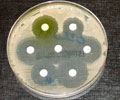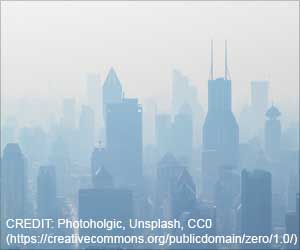Epidermicin antibiotic is a new alternative which could be used for the treatment of antibiotic resistance, reveals study.
Highlights
- Antibiotic resistance is one of the biggest threats to the world.
- A new study found to assess the effect a new antibiotic for treating antibiotic resistance.
- Epidermicin antibiotic is a new alternative which is effective for antibiotic resistance.
The research study was conducted by administering epidermicin and mupirocin separately to the noses of cotton rats which had been colonized with MRSA(methicillin resistant staphylococcus aureus). The other group which was considered as a control did not receive any drug.
The effect of epidermicin was assessed by administering a dose of 0.8% once during the first day of the study. Mupirocin drug was administered at a dose of 2% twice daily for a period of three days. The test concluded after five days.
Study Findings
The test results found a single dose of epidermicin to be effective as mupirocin administered twice daily for three days to eradicate MRSA from nostrils of cotton rats.
The decolonization of MRSA in nasal carriage is essential for preventing MRSA infections in surgery patients.
"This project has shown effectiveness in a rodent model and makes a compelling case for further study, though it is not yet clear if a single dose of epidermicin will be as effective in humans. We now need to demonstrate that epidermicin is safe in pre-clinical testing and progress towards human trials," he added.
Antibiotic resistance is identified as one of the biggest threat to human health. It is the ability of the micro organism to stop the growth of anti-microbial agents to work against it.
More than two million infections in the United States of America is caused by antibiotic-resistant micro organisms every year.
The global cost of antibiotic resistance may rise upto £100 trillion and result in 10 million deaths per year by 2050, according to a UK Review on Antimicrobial Resistance.
Interesting Facts on Antimicrobial Resistance
- Misuse of antimicrobials increased the number and type of resistant organisms
- Children and older adults are more prone to antibiotic resistance as they have the highest rate of antibiotic use
- Inappropriate use of antimicrobials may drive the development of drug resistance
- Poor prevention and control of infections may increase the risk of drug resistance
- One out of 5 emergency department visits for adverse drug events are caused by antibiotics.
- Andrew Gould et.al. A single dose of epidermicin NI01 is sufficient to eradicate MRSA from the nares of cotton rats, Journal of Antimicrobial Chemotherapy, (2017) DOI: 10.1093/jac/dkw457
- Facts about Antibiotic Resistance - (https://www.cdc.gov/getsmart/community/about/fast-facts.html)
- 10 facts on antimicrobial resistance - (http://www.who.int/features/factfiles/antimicrobial_resistance/en/)
Source-Medindia














